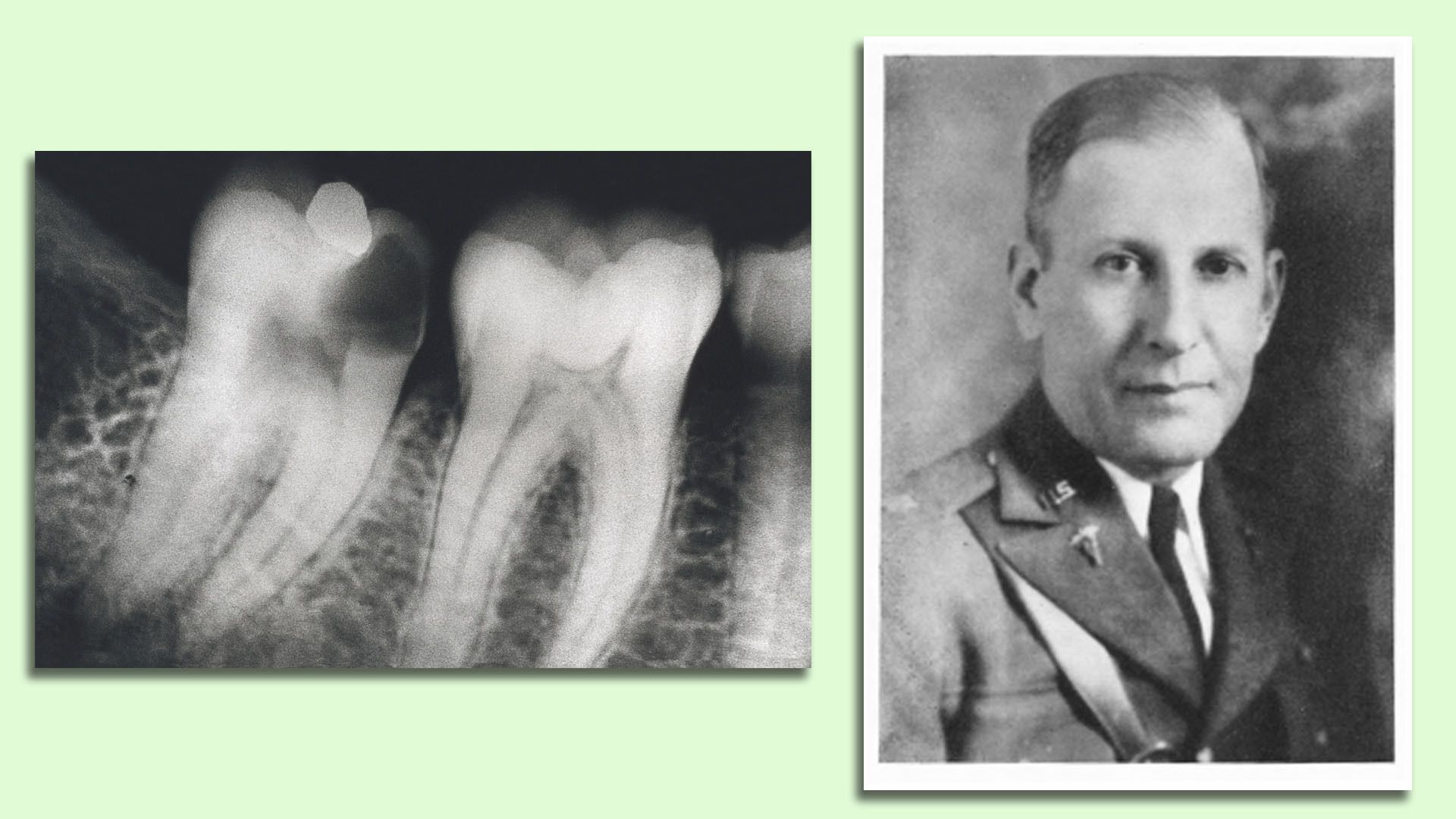Oct 14, 2021 - Health
Hispanic Heritage: Puerto Rican scientist takes a bite out of cavities
Add Axios as your preferred source to
see more of our stories on Google.

A molar with decay from bacteria that causes cavities (left) seen in an X-Ray. A portrait of Rodríguez, who died in 1932 (right). Photo: BSIP/Universal Images Group via Getty Images; College of American Dentists

